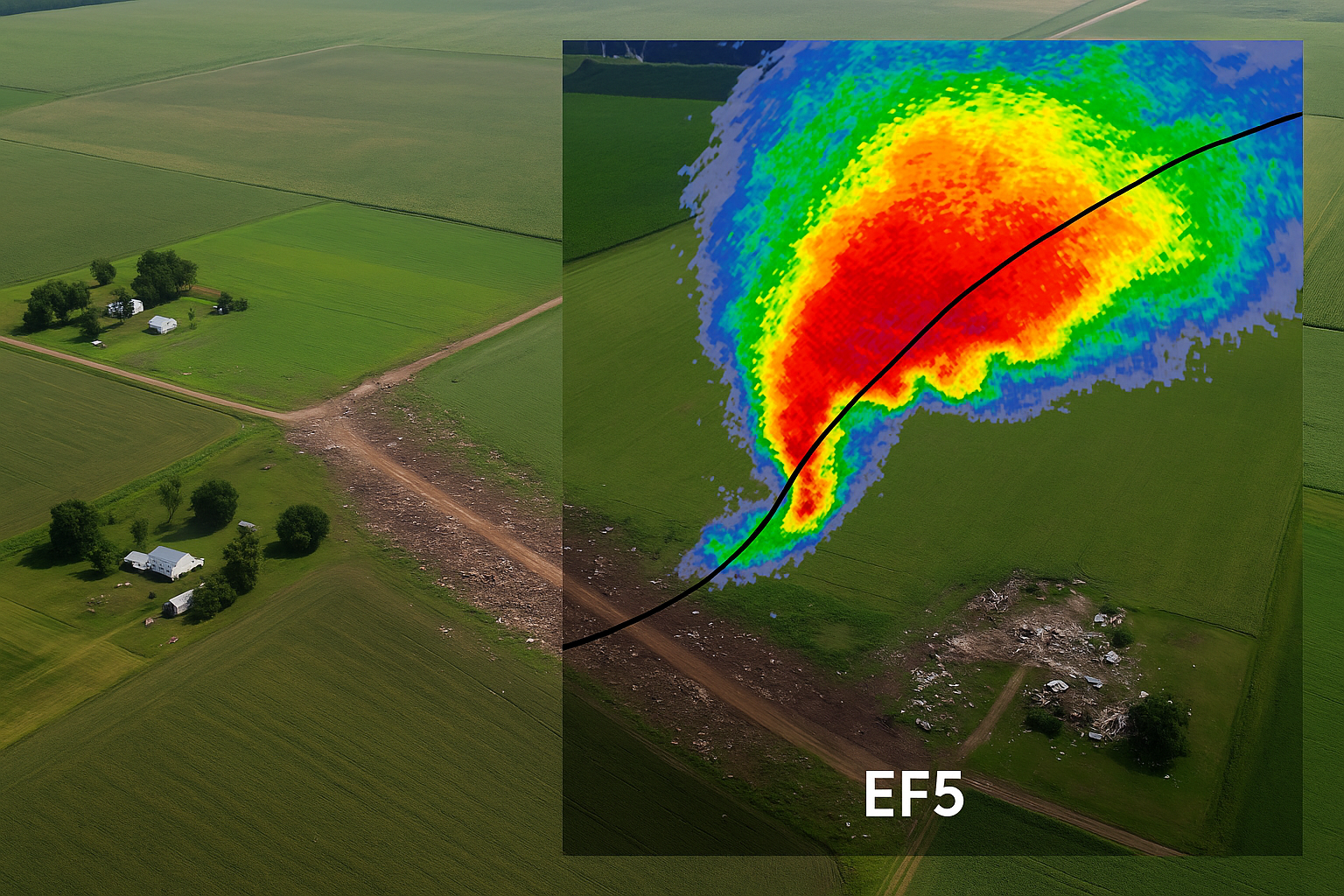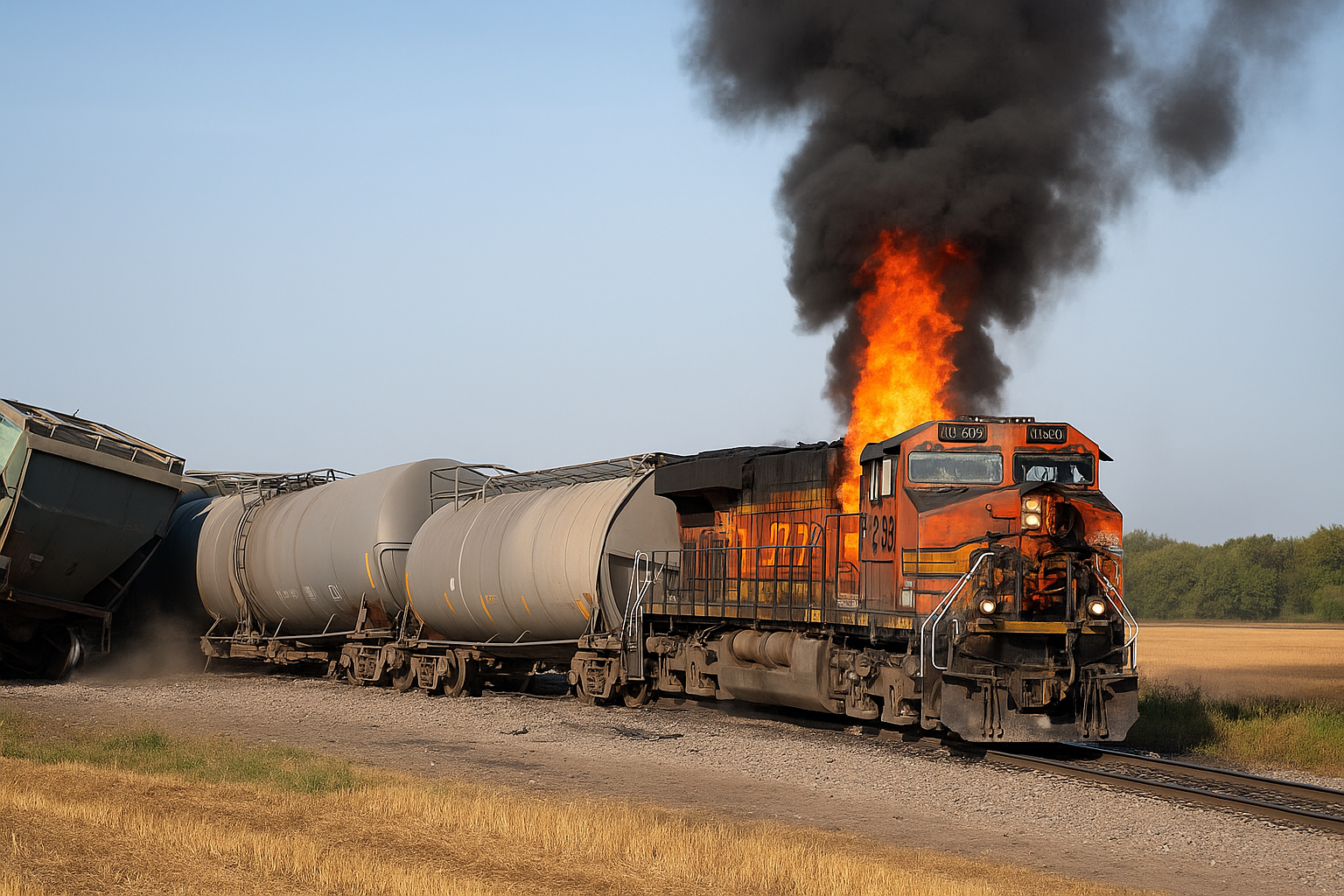The National Weather Service has officially upgraded a June 20 tornado near Enderlin, North Dakota, to EF5 status — the first such classification in the U.S. in 12 years.
Winds over 210 mph, plus forensic analysis of derailed train cars, solidified the reclassification. Three people died.
Though the tornado struck over 150 miles from Bismarck, its implications send ripples across the state — prompting renewed questions about preparedness, climate shifts, and what the future holds for communities like ours.
This marks the end of a 12-year “EF5 drought,” the longest stretch without an EF5 twister in U.S. records. The upgrade came after detailed damage surveys, especially the lofting of heavy train cars, which are not standard indicators in the Enhanced Fujita scale.
Meteorologists caution that while Bismarck hasn’t seen an event of that magnitude, this development challenges assumptions about where extreme tornadoes can strike. The reclassification fuels ongoing debate about whether climate change is increasing the frequency or strength of violent storms.
County and city officials in Bismarck are already reviewing emergency protocols and tornado-warning systems. “We always prepare for the worst, but this raises the bar,” says a Bismarck emergency manager (name withheld for now). Local schools and shelters are revisiting their safety drills.
Residents are reminded: even though Bismarck sits somewhat outside the traditional “Tornado Alley,” no place is immune. Local weather watchers and storm spotter networks are renewing calls for vigilance this storm season.
“We upgraded this after months of detailed work — overturning train cars isn’t something an EF3 can do.” — Melinda Beerends, lead meteorologist at NWS Grand Forks, explaining the decision
“Our priority now is empowering Bismarck citizens with faster alerts and safer shelters,” — Bismarck city official, in preliminary comments to the local press
Concern | What You Should Know |
|---|---|
Storm risk | Tornadoes like this are still rare; but this EF5 signals that extreme events can push further north. |
Preparedness | Check your safe rooms, storm shelters, and mobile alert settings now. |
Policy & planning | Municipal and county leaders will likely revisit tornado response systems and warning infrastructure. |
Climate watch | The science around extreme-weather trends is evolving — stay informed. |
North Dakota’s first EF5 in over a decade doesn’t change Bismarck’s geography — but it demands we rethink risk, strengthen readiness, and never let complacency slide.



